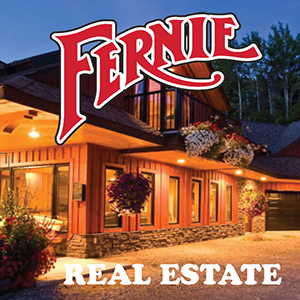Banff plans to restrict the number of gift shops and fast-food restaurants within the resort town’s core, after a visitor survey found the destination fails as an “authentic mountain community.”

Banff, Alta., is considering confining future fast-food restaurants to a mall food court as tourists say the town lacks authenticity.
The popular tourist town nestled in Alberta’s Rockies is in throes of an identity crisis, as it undertakes a full-scale review of its land-use bylaw.
The town’s Banff Community Plan, as well as changes to Parks Canada regulations prompted the review. Both mirror the findings of the visitor survey.
But even while officials mull their options, which include confining future fast-food restaurants to a downtown mall food court and limiting the amount of floor space new stores can legally dedicate to souvenirs, they admit the definition of “authentic mountain community” is elusive.
“Is my definition of what is authentic the same thing as what a visitor from Germany [considers authentic]? I’m sure it’s very much a moving target, and very fluid,” said town councillor Karen Sorensen, who sits on the municipal planning commission.
Senior municipal planner Darren Enns said “it’s difficult to say” what makes a mountain community authentic.
“In terms of architecture, you expect to see some of that Rocky Mountain vernacular, which is typical of buildings in the mountains,” Mr. Enns said. “So that’s one obvious area to step in and regulate. But it’s not just about how the buildings are made, it’s what you fill them up with.”
Existing fast-food restaurants and gift shops will not be affected by any change in the land-use bylaw, Ms. Sorensen said.
“It’s not the town’s intention to damage anyone’s business. We are looking to create new opportunities for business if anything,” she said.
But already, local business owners are wary of the plan.
“The word ‘socialist’ come to mind. This is a free market, and it should be run that way,” said Ossi Treutler Jr., owner of Freya’s Jewellery. “If we have all these souvenir stores, souvenir stores must be what people want.”
Fabio Wagner, owner of Unique Canadian Alps Gift Shop and Rundle Gifts, said selling souvenirs is the only way he can afford to pay rent in Banff’s commercial core.
“I’ve been here now for 15 years. I’ve seen a lot of businesses come and go, and they go very quickly if they’re not in the tourist market,” he said. “If you have a bakery or a hair salon or an electronics store, you could never survive on [the main strip] Banff Avenue. That’s not because we wouldn’t like to see them there, it’s because they can’t pay rent.”
Ms. Sorensen said the town has started a four- to six-month public consultation process. Any changes to the bylaw will need to be approved by both the town council and Parks Canada, she added.
According to branding experts, “authenticity” is indeed a worthy pursuit.
“It is absolutely right to be looking into the issue, but it’s not necessarily easy to determine which is the right choice,” said Joe Pine, co-founder of the Ohio-based Strategic Horizons LLP, which has helped dozens of companies gain authenticity in the eyes of consumers. In 2007, he co-authored Authenticity: What Consumers Really Want.
One option, beyond limiting the number of fast-food restaurants and gift shops, is to force franchises to adopt subtle, uniform signage in keeping with the town’s aesthetic, he said.
“Authenticity is becoming the new consumer sensibility, the primary criterion by which people decided where to go and what to buy” he said. “They want to buy the real from the genuine, even if they don’t know what that is.”
National Post
National Post






















